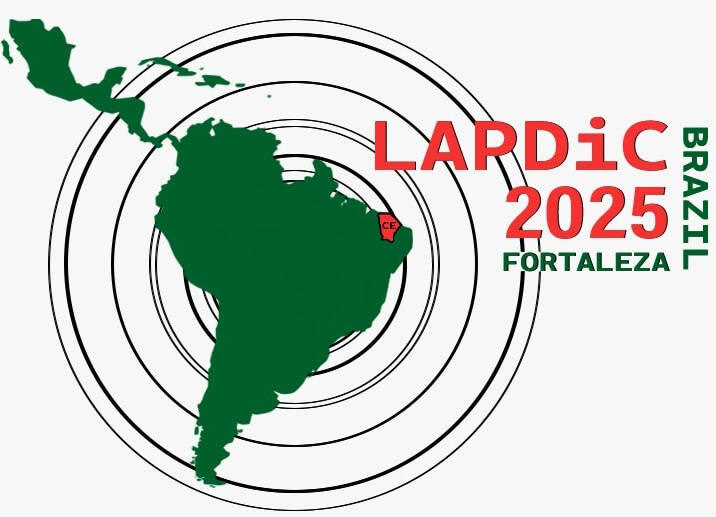Abstract Submission
The Organizing Committee of LAPDiC 2025 invites researchers, students, and professionals to submit abstracts for oral and poster presentations. Submissions are welcome in all areas of crystallography and structural science, as outlined on our Microsymposia Topics page.
Guidelines
- Deadline for abstract submission: June 30, 2025
- Abstracts must be submitted in English.
- Submissions are limited to one page (A4), including text and references. No figures or tables are allowed.
- The maximum dimensions for posters are 1 m (width) x 2 m (height).
Please use the official Word template provided below to prepare your abstract:
👉 Download Abstract Template (DOCX, PDF)
Your abstract should follow the structure and formatting provided in the template. Only text-based content will be accepted; submissions containing figures or tables will be rejected.
Submission Process
Send your completed abstract as a PDF document (.pdf) through the LAPiDC 2025 Registration Portal.
Important Notes
- All accepted abstracts will be included in the official Book of Abstracts.
- At least one author must register for the conference to present the work.
- Abstracts submitted for oral presentations may be reallocated as posters depending on the program schedule and number of submissions.
For questions about the submission process, please contact us at: [email protected]
Scientific topics
Machine Learning and AI in XRPD
Applications of machine learning and artificial intelligence in powder diffraction, including phase identification, automated peak fitting, extensive dataset analysis, and structure prediction.
Multi-phase Identification and Quantification
Approaches for identifying and quantifying phases in complex systems using XRPD, with emphasis on whole-pattern methods, peak deconvolution, and complementary characterization techniques.
Polymorphism in Organic and Metal-Organic Compounds
Use of XRPD to study polymorphism in organic and metal-organic compounds, focusing on phase transitions, quantitative analysis, and structure–property relationships.
Total Scattering Methods for Materials Characterization
Application of total scattering and pair distribution function (PDF) analysis to investigate local and long-range order in crystalline, amorphous, and nanostructured materials.
Neutron Powder Diffraction
Use of neutron diffraction to explore magnetic structures, hydrogen positions, isotopic substitution, and other features inaccessible by X-rays, including multimodal studies.
Structure Determination and Refinement Using XRPD Data
Structure solution and refinement from powder diffraction data using methods such as ab initio approaches, Rietveld refinement, and integrated computational tools.
Synchrotron X-ray Powder Diffraction
Advanced XRPD studies using synchrotron radiation, including in situ and operando experiments, high-pressure/high-temperature conditions, and microdiffraction.
General Interest XRPD
Open session for XRPD-related research not covered by other topics, including novel instrumentation, unconventional applications, and methodological developments.
How to Register
Registration is available online through the LAPiDC 2025 Registration Portal.
Participants opting for the LACA-ABCr/LAPDiC combined registrations must also register at the LAPDiC Registration Portal.
For any inquiries regarding registration, payments, or abstract submissions, please contact [email protected].
We look forward to welcoming you to Fortaleza in October 2025!
